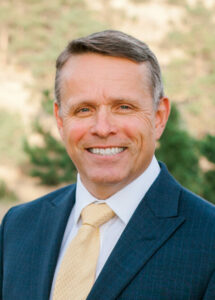Last Updated on May 31, 2023 by OCF Communications

Let’s jump right in. I know pornography is not something that many believers like to discuss, but if we are going to effectively impact the military community, we have to be willing to authentically engage in the areas where the battle is raging.
The statistics couldn’t be clearer on the overwhelming, devastating impact of pornography. Here are three from the Family Research Council as part of a study from November 2017:
- Pornography is a global $97 billion annual industry.
- Porn websites have more unique visitors each month than Netflix, Amazon, and Twitter combined.
- 49% of rescued sex trafficking victims report that they were forced to participate in the production of pornographic material.
These data points alone underscore just how widespread such addictive behaviors are in our society, and these behaviors are not just a “guy’s problem” either. Consider the data from this ongoing client survey since 2009 by Pure Desire Ministries:
- 68% of church-going men struggle with unwanted sexual behavio
- 25-30% of church-going women struggle with sexual dependency issues.
Paul said, “I do not understand what I do. For what I want to do I do not do, but what I hate I do” (Romans 7:15). We don’t know specifically to which issues Paul was referring, but sadly too many believers could utter these same words regarding problematic sexual behaviors.
At a workshop in Pensacola, Fla., this past January, OCF partnered with Pure Desire Ministries to discuss sexual brokenness and unwanted sexual behaviors and introduce solutions for healing and wholeness.
In addition to offering the above statistics, the leaders of that event, CAPT Brent and Nicole Breining, USN (Ret.), took it a step further, offering several case studies of military leaders who were very successful in their careers, but had their careers destroyed by problematic sexual behaviors that caught up with them.
Among these real-world examples were two command master chiefs who were charged with soliciting minors; a rear admiral and strike group commander who was relieved of command after being caught viewing porn on a DoD computer while underway; and a Navy contractor who pled guilty to providing bribes to Navy officials to include money, travel, and prostitutes.
If you asked these leaders whether they intended to destroy their careers when they woke up that day, I suspect they would probably say no. If you think you are “above” any of these sins, or perhaps sin in general, consider what the Bible has to say about that: “Therefore let anyone who thinks that he stands take heed lest he fall” (1 Corinthians 10:12). Also, “If we say we have no sin, we deceive ourselves, and the truth is not in us” (1 John 1:8).
Brent said, “[These things happen on] the subconscious level and over time it becomes habitual, and the behaviors become out of control. This doesn’t happen overnight. It’s conditioned over time and brings people to that place of thinking they could get away with it.”
In the face of what can sometimes appear to be overwhelming and insurmountable obstacles in the lives of so many, what can we do? Here are five considerations for you:
- Realize we can find healing in authentic fellowship and confession with one another. “Therefore, confess your sins to one another and pray for one another, that you may be healed. The prayer of a righteous person has great power as it is working” (James 5:16).
- Embrace Biblical views on sexuality, and seek to restore, not reject, those affected by a sexual addiction. “Therefore, there is now no condemnation for those who are in Christ Jesus, because through Christ Jesus the law of the Spirit who gives life has set you free from the law of sin and death” (Romans 8:1-2).
- Recognize the impact that sexual addictions can have on the individual, spouses, and families in the form of betrayal trauma. “But each person is tempted when they are dragged away by their own evil desire and enticed. Then, after desire has conceived, it gives birth to sin; and sin, when it is full-grown, gives birth to death” (James 1:14-15).
- Rejoice that we can have hope and victory through our heavenly Father. “What a wretched man I am! Who will rescue me from this body that is subject to death? Thanks be to God, who delivers me through Jesus Christ our Lord!” (Romans 7:24-25).
- Reinforce the importance of Godly character among our military leaders. “Finally, brothers, whatever is true, whatever is honorable, whatever is just, whatever is pure, whatever is lovely, whatever is commendable, if there is any excellence, if there is anything worthy of praise, think about these things” (Philippians 4:8).
In this issue of Command, you’ll read about CDR Carl Crabtree, USN (Ret.), and how God healed him from “PTSD, trauma, moral injury, and habitual sin,” and Dr. John Thorington, who explores some of the theological implications of addiction.
Starting this month, we’re releasing a series of episodes on the OCF Crosspoint podcast that delve into these issues and more, from the work being done by the Breinings to topics that focus on sexuality and singleness and the impact of problematic sexual behaviors on teens and families.
We hope you’ll join us for this important series on the podcast. If you aren’t a subscriber, you can find OCF Crosspoint on Apple Podcasts, Spotify, or where you listen to podcasts. You can also get more information at ocfusa.org/subscribe, and be sure to tell others about the podcast.
As soldiers together in a broken world, let’s authentically engage the sin in our own lives and the lives of those around us with truth, love and grace, remembering: “For freedom Christ has set us free; stand firm therefore, and do not be subject again to a yoke of slavery” (Galatians 5:1).








Leave A Comment